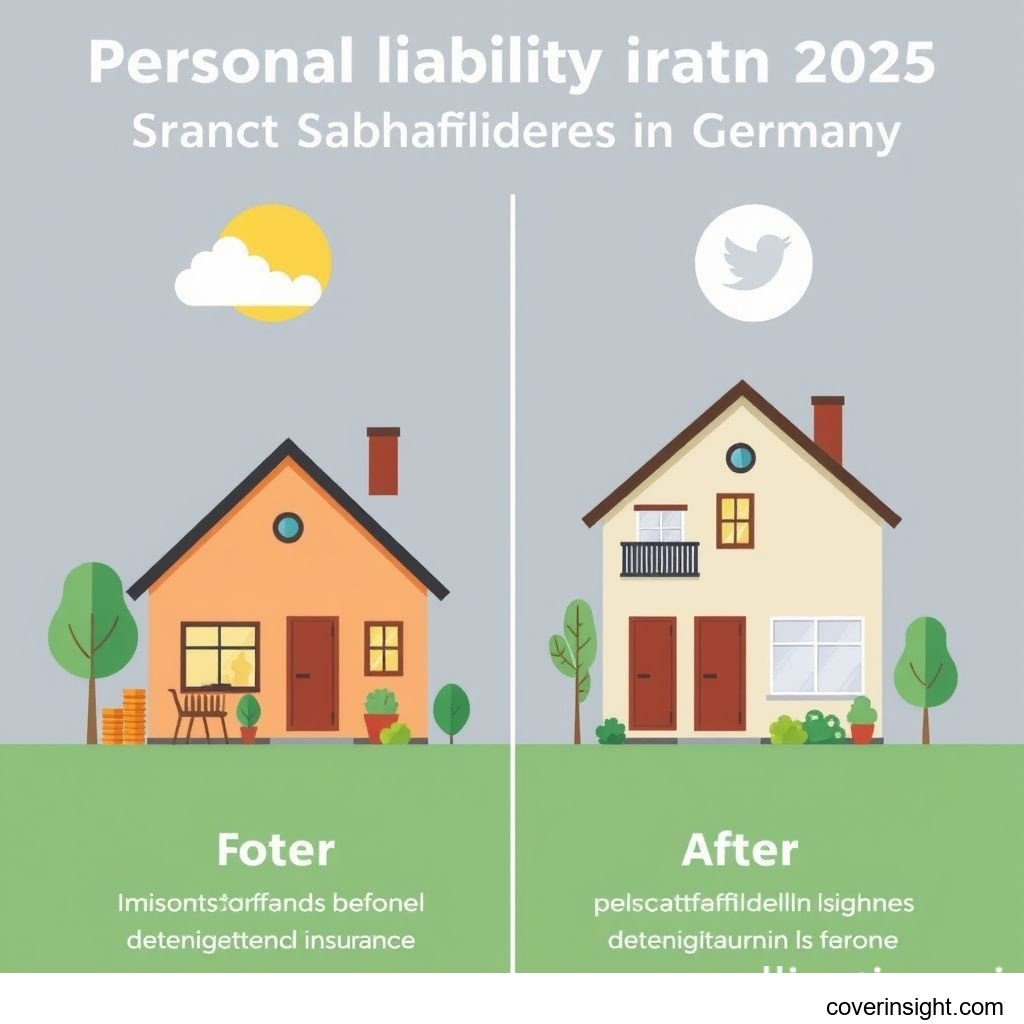Introduction
In the intricate landscape of German consumer protection, Stiftung Warentest stands as a beacon of independent assessment. Each year, this highly respected organization meticulously scrutinizes a vast array of products and services, providing invaluable guidance to millions. For 2025, their highly anticipated comparison of the "Beste Versicherungen" (Best Insurances) promises to once again set the benchmark for quality, fairness, and value. In a market as complex and crucial as insurance, navigating the myriad of providers and policies can feel like searching for a needle in a haystack. Stiftung Warentest’s results are not just recommendations; they are a critical resource, empowering consumers in Germany to make informed decisions that protect their financial well-being and offer true peace of mind.
Coverage Details
Understanding what your insurance policy truly covers and, just as importantly, what it doesn't, is paramount. Stiftung Warentest's evaluations delve deep into the fine print, distinguishing top-tier policies from those with hidden pitfalls.
What’s Included
When Stiftung Warentest assesses insurance policies, they prioritize comprehensiveness and clarity. A highly-rated policy typically boasts generous coverage limits, ensuring you're adequately protected even in severe cases. For instance, in liability insurance (Haftpflichtversicherung), a good policy often includes worldwide coverage, protection against "Forderungsausfall" (loss recovery for damages you sustained from an uninsured third party), and coverage for minor negligence. For household contents insurance (Hausratversicherung), the best policies extend beyond basic fire and theft to include damages from natural events like storms and hail, or even gross negligence, which is often an exclusion in standard policies. Furthermore, many recommended policies offer essential add-ons as standard, such as bicycle theft coverage or protection for valuable items outside the home, without charging extra.
Common Exclusions
Even the best policies have limitations, and Stiftung Warentest is keen to highlight these. Common exclusions across various insurance types include damages caused by war or civil unrest, intentional acts, and in some cases, gross negligence if not explicitly covered. For instance, while a private liability policy covers damages you accidentally cause, it won’t protect you if you deliberately smash someone’s window. In health insurance, pre-existing conditions may be excluded or subject to higher premiums, and certain experimental treatments might not be covered. It's also worth noting that specific natural disasters like earthquakes or widespread floods often require separate, specialized add-ons (Elementarschadenversicherung) rather than being included in standard home insurance. As someone living in DE, I've seen firsthand how important it is to read the "Kleingedruckte" – the fine print – because what you assume is covered often isn't unless explicitly stated.
Cost Analysis
While comprehensive coverage is vital, the cost remains a significant factor for most households. Stiftung Warentest's analysis not only identifies the best coverage but also evaluates the value for money, helping consumers avoid paying "ins Blaue hinein" – into the blue, or without clear reason.
Price Factors
Insurance premiums in Germany are influenced by a multitude of factors, making comparison crucial. Your personal risk profile plays a major role: for car insurance, this includes your driving history, vehicle type, and even where you park your car. For health insurance, age, existing health conditions, and lifestyle choices are key. The level of coverage you choose directly impacts the price; opting for higher deductibles (Selbstbeteiligung) can lower your annual premium, but means you pay more out-of-pocket in case of a claim. Location also matters; premiums in larger cities or areas prone to natural events might be higher. According to data from the GDV - German Insurance Association, factors like the frequency of claims in a particular region can significantly influence pricing, underscoring the granular detail insurers use to calculate costs.
Saving Tips
Based on my experience, and aligning with Stiftung Warentest's advice, there are several smart ways to save on insurance without compromising essential coverage. First and foremost, always compare offers – don't just renew automatically. The market is dynamic, and new, better deals frequently emerge. Utilizing comparison portals, especially those informed by Stiftung Warentest's ratings, can yield substantial savings. Consider increasing your deductible if your financial situation allows, as this can considerably reduce your monthly payments. Bundling multiple policies with the same insurer often results in discounts. Finally, regularly review your policies to ensure they still meet your needs; paying for coverage you no longer require is money wasted. For further insights and resources on managing your insurance portfolio, you might find the information at Insurance Resources Global helpful.
FAQs
How much does Stiftung Warentest Ergebnisse cost?
Stiftung Warentest's results are primarily published in their consumer magazine "Finanztest," which can be purchased as a physical copy or a digital download. Individual test results or specific articles can also be bought directly from their website. While the research itself is extensive and costly, the consumer pays a relatively small fee for access to these expert-vetted comparisons.
What affects premiums?
Premiums are influenced by various factors, including the type of insurance, the extent of coverage, the chosen deductible, your personal risk profile (e.g., age, health, driving history), and even your geographical location. The more risk an insurer takes on, or the broader the coverage, the higher the premium.
Is it mandatory?
In Germany, only certain types of insurance are legally mandatory. The most prominent example is motor vehicle liability insurance (Kfz-Haftpflichtversicherung), which is required by law for all vehicle owners. Other insurances, like private liability insurance (Haftpflichtversicherung) or household contents insurance (Hausratversicherung), are not mandatory but are highly recommended by consumer organizations like Stiftung Warentest due to the significant financial risks they mitigate. For comprehensive information on mandatory and recommended insurances in Germany, check out DE Insurance Home.
How to choose?
Choosing the right insurance involves assessing your personal needs and risks, comparing different providers' offers based on coverage and price, and paying close attention to the terms and conditions. Consulting independent test results, such as those from Stiftung Warentest, is an excellent starting point. They provide unbiased insights into which policies offer the best performance-to-price ratio. A recent report by BaFin - Federal Financial Supervisory Authority highlighted the importance of transparent information in the insurance market, making independent reviews all the more valuable for consumers.
Consequences of no coverage?
The consequences of not having adequate insurance coverage can be severe. Without private liability insurance, for instance, you are personally and fully liable for damages you cause, which could lead to significant financial ruin. Consider the case of a young family in Munich whose basement flooded after a heavy rainfall – their robust household contents insurance, highly rated by Stiftung Warentest, covered damages that would have otherwise cost them tens of thousands of euros. Without car insurance, driving is illegal, and any accident you cause could lead to immense personal debt and legal ramifications. In essence, opting out of essential coverage means you're "auf Nummer sicher gehen" – or rather, not going on the safe side, and taking on potentially catastrophic personal financial risk.
Author Insight & Experience
Based on my experience living in Germany and navigating its sometimes-daunting insurance landscape, the work of Stiftung Warentest is nothing short of invaluable. The German insurance market is incredibly diverse, offering everything from highly specialized niche policies to broad, all-encompassing packages. This breadth, while offering choice, also brings complexity. Trying to make an informed decision without an independent guide like Stiftung Warentest would be akin to throwing darts in the dark. Their rigorous testing methodology, transparent reporting, and unwavering focus on consumer benefit truly demystify the process. For me, their "Finanztest" magazine is a staple, providing the clarity needed to ensure my family is properly protected without overpaying. It's comforting to know there's a reliable voice cutting through the noise, helping us secure a bit more "Ruhe im Karton" – peace and order – in our financial lives.







Comments